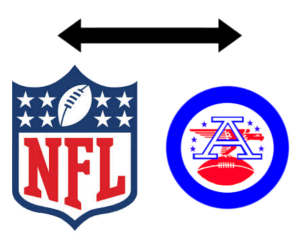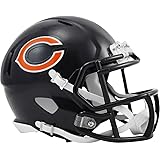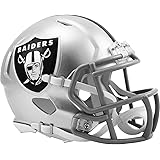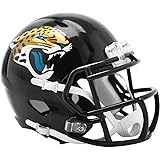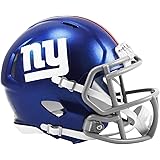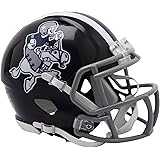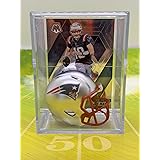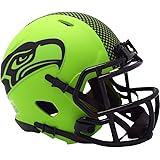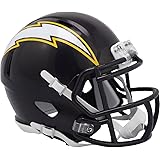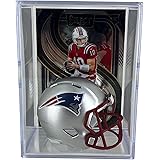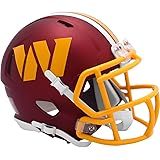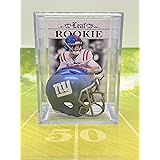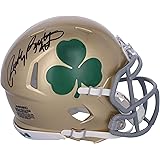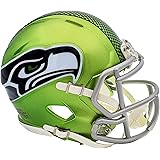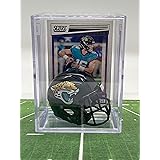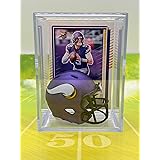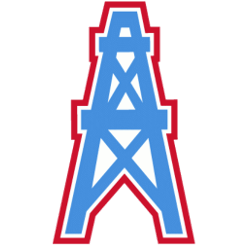
The enduring legacy of the Houston Oilers continues to influence football profoundly, shaping the game’s history with AFL championships, iconic players, and a resilient spirit. Players like George Blanda, Earl Campbell, and Warren Moon left lasting impacts.
From early successes to late 1980s resurgence, the team’s journey inspires future generations. Despite stadium issues and relocation challenges, the Oilers remain a vital part of football lore, as showcased in documentaries and media tributes. Their memory lives on through memorabilia and fan experiences, providing detailed insights into football’s past.
Established
1960
City
Houston - Nashville
League History
1970 - Present / National Football League
1960 - 1969 / American Football League
Team History
1999 - Present / Tennessee Titans
1997 - 1998 / Tennessee Oilers
1960 - 1996 / Houston Oilers
Nickname
Oilers - The Houston Oilers are one of the most beloved teams in NFL history, and their nickname has a long and exciting origin story. The team was founded in 1960 as part of the American Football League (AFL). At that time, they were known as the Dallas Texans. However, after two seasons, they moved to Houston and changed their name to reflect their new home city.
Houston Oilers Origin
The original owner Bud Adams wanted something unique for his team's nickname, so he decided on "Oilers" because it represented Texas' oil industry heritage and its hard-working people who worked tirelessly at those jobs day after day. It also paid homage to Adams’ background – he had been an oilman before buying the franchise!
In addition, many believe there is a subtle reference within this name pointing back toward another famous football team from Texas – namely 'the Rice Owls.' This is due to how similar ‘Owls’ sounds when spoken out loud compared with ‘Oilers,’ making this an even more fitting tribute for fans all around!
As time went by, however, public opinion began shifting away from using such names, which could be seen by some people as offensive or outdated, leading them into change again during the 1997 season when they became known simply by 'the Titans.' Nevertheless, no matter what you call them, Houston Oilers will remain part of NFL folklore, thanks mainly to being one first-ever expansion franchise established within the league itself!
Championship
Super Bowl 0
AFL Championship 2
1961, 1960
Stadium
2016 - Present / Nissan Stadium
2007 - 2015 / LP Field
2002 - 2006 / The Coliseum
1999 - 2002 / Adelphia Coliseum
1998 / Vanderbilt Stadium
1997 / Liberty Bowl Memorial Stadium
*Houston*
1968 - 1996 / Houston Astrodome
1965 - 1967 / Rice Stadium
1960 - 1964 / Jeppesen Stadium
Owner
2013 - Present / KSA Industries
1960 - 2013 / Bud Adams
- 1960
- 1960
- 1961
- 1968
- 1970
- 1995
-
Houston Oilers Team Formation
The Houston Oilers began in 1960 as a charter member of the American Football League. They were owned by Bud Adams, a Houston oilman, who had made several previous unsuccessful bids for an NFL expansion team in Houston. Adams was an influential member of the eight original AFL owners, since he, Dallas Texans/Kansas City Chiefs founder Lamar Hunt and Buffalo ... -
AFL Championship Winner 1960
The 1960 American Football League Championship Game was the first AFL title game, played on New Year’s Day 1961 at Jeppesen Stadium in Houston, Texas. With New Year’s on Sunday, the major college bowl games were played on Monday, January 2. The game matched the Eastern Division champion Houston Oilers (10–4), against the Western Division champion Los Angeles Chargers (10–4), ... -
AFL Championship Winner 1961
The 1961 American Football League Championship Game was a repeat of the first AFL title game, between the Houston Oilers and the San Diego Chargers (formerly the Los Angeles Chargers). It was played on December 24 at Balboa Stadium in San Diego, California, and the Oilers were three-point favorites. -
Astrodome – First Dome Stadium
The Oilers won the AFL Eastern Division title again in 1967, then became the first professional football team to play in a domed stadium, when they moved into Houston’s Astrodome for the 1968 season. Previously, the Oilers had played at Jeppesen Stadium at the University of Houston (now called Robertson Stadium) from 1960 to 1964, and Rice University’s stadium from ... -
NFL-AFL Merge Leauges
The years immediately after the AFL-NFL Merger were not as kind to the Oilers, who sank to the bottom of the AFC Central division. After going 3-10-1 in 1970, they went 4-9-1 in 1971, and then suffered back-to-back 1-13 seasons in 1972-73. But by 1974, the Oilers led by Hall of Fame coach Sid Gilman brought the team back to ... -
Final years in Houston
At the same time, Adams again lobbied the city for a new stadium, one with club seating and other revenue generators present in recently–built NFL stadiums, and he committed to pay for 25% of the cost of a new stadium. However, mayor Bob Lanier initially supported Adams’s bid for a new stadium privately but refused to publicly support the project. ...
To qualify as the greatest player for this team, the player must have played one season for this team. If not, we will remove the player.
* verifies that player has played for this team as an added player by a fan.
Houston Oilers History
The Houston Oilers history is one of triumph, struggle, and transformation. Founded in 1960 as a charter member of the American Football League (AFL), the team quickly made its mark on Houston Oilers football by winning the league’s first two championships in 1960 and 1961. Their early success established the Oilers as one of the AFL’s premier franchises before merging into the NFL in 1970.
Led by stars such as George Blanda, Billy Cannon, and Charlie Hennigan, the Oilers became a powerhouse in the AFL’s early years. After the merger, the franchise faced challenges competing against established NFL teams but remained a tough competitor. Their move to the Houston Astrodome in 1968 gave the city the first-ever domed stadium for football, cementing the Oilers as pioneers of the sport.
The Houston Oilers football legacy was defined by legendary players. Running back Earl Campbell dominated the late 1970s with his punishing style, earning NFL MVP honors and leading Houston to back-to-back AFC Championship Games in 1978 and 1979. Quarterback Warren Moon brought new life to the team in the late 1980s and early 1990s, guiding the Oilers’ “Run and Shoot” offense to multiple playoff appearances.
Other icons such as Mike Munchak, Bruce Matthews, Haywood Jeffires, and Drew Hill also shaped the franchise. Campbell’s power, Moon’s precision, and the Oilers’ high-scoring attack remain staples in Houston Oilers history.
Houston Oilers Achievements
The Oilers’ greatest achievements include their two AFL Championships (1960, 1961), along with several AFC Central Division titles in the late 1980s and early 1990s. However, they also experienced heartbreak, most notably the 1993 AFC Wild Card game against the Buffalo Bills, when the Oilers surrendered a 35–3 lead in what became known as “The Comeback.” Despite such setbacks, the franchise remained competitive and gave fans many memorable moments.
By 1995, the team drafted quarterback Steve McNair, who symbolized the future of the organization. Financial struggles and stadium disputes, however, led to owner Bud Adams relocating the team. The Oilers played as the Tennessee Oilers for two seasons before rebranding as the Tennessee Titans, where they reached the Super Bowl in 1999.
The Oilers’ final years in Houston were marked by dwindling fan support, but their influence on professional football remains undeniable. The franchise’s innovations, star players, and passionate fan base left a permanent imprint on NFL history. Today, the Houston Oilers on Wikipedia remain a celebrated chapter in football’s story, with their powder-blue uniforms and “Luv Ya Blue” era remembered fondly by fans.
Sports Fan Products
Retired Number
1 / Warren Moon
9 / Steve McNair
27 / Eddie George
34 / Earl Campbell
43 / Jim Norton
63 / Mike Munchak
65 / Elvin Bethea
74 / Bruce Matthews
*Blue is this team’s history





